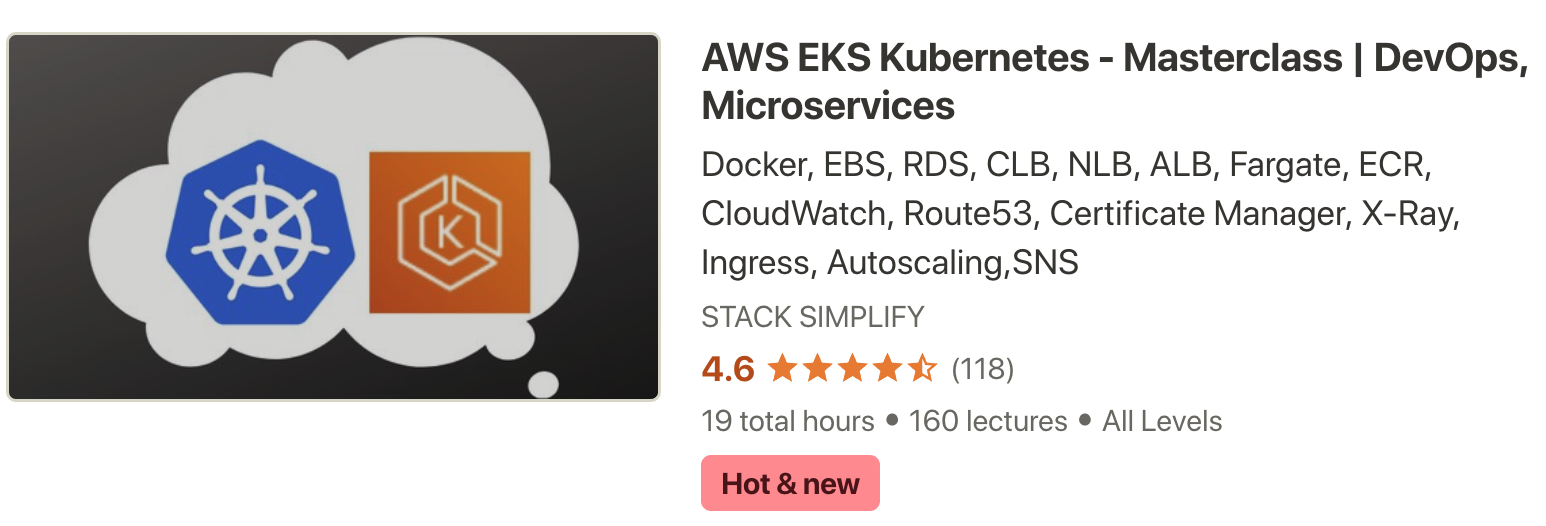Kubernetes - Requests and Limits ¶
Step-01: Introduction ¶
- We can specify how much each container a pod needs the resources like CPU & Memory.
- When we provide this information in our pod, the scheduler uses this information to decide which node to place the Pod on.
- When you specify a resource limit for a Container, the kubelet enforces those
limitsso that the running container is not allowed to use more of that resource than the limit you set. - The kubelet also reserves at least the
requestamount of that system resource specifically for that container to use.
Kubernetes Manifests ¶
#01-storage-class.yml
apiVersion: storage.k8s.io/v1
kind: StorageClass
metadata:
name: ebs-sc
provisioner: ebs.csi.aws.com
volumeBindingMode: WaitForFirstConsumer
#02-persistent-volume-claim.yml
apiVersion: v1
kind: PersistentVolumeClaim
metadata:
name: ebs-mysql-pv-claim
spec:
accessModes:
- ReadWriteOnce
storageClassName: ebs-sc
resources:
requests:
storage: 4Gi
#03-UserManagement-ConfigMap.yml
apiVersion: v1
kind: ConfigMap
metadata:
name: usermanagement-dbcreation-script
data:
mysql_usermgmt.sql: |-
DROP DATABASE IF EXISTS usermgmt;
CREATE DATABASE usermgmt;
#04-mysql-deployment.yml
apiVersion: apps/v1
kind: Deployment
metadata:
name: mysql
spec:
replicas: 1
selector:
matchLabels:
app: mysql
strategy:
type: Recreate
template:
metadata:
labels:
app: mysql
spec:
containers:
- name: mysql
image: mysql:5.6
env:
- name: MYSQL_ROOT_PASSWORD
valueFrom:
secretKeyRef:
name: mysql-db-password
key: db-password
ports:
- containerPort: 3306
name: mysql
volumeMounts:
- name: mysql-persistent-storage
mountPath: /var/lib/mysql
- name: usermanagement-dbcreation-script
mountPath: /docker-entrypoint-initdb.d #https://hub.docker.com/_/mysql Refer Initializing a fresh instance
volumes:
- name: mysql-persistent-storage
persistentVolumeClaim:
claimName: ebs-mysql-pv-claim
- name: usermanagement-dbcreation-script
configMap:
name: usermanagement-dbcreation-script
#05-mysql-clusterip-service.yml
apiVersion: v1
kind: Service
metadata:
name: mysql
spec:
selector:
app: mysql
ports:
- port: 3306
clusterIP: None # This means we are going to use Pod IP
#06-UserManagementMicroservice-Deployment-Service.yml
apiVersion: apps/v1
kind: Deployment
metadata:
name: usermgmt-microservice
labels:
app: usermgmt-restapp
spec:
replicas: 1
selector:
matchLabels:
app: usermgmt-restapp
template:
metadata:
labels:
app: usermgmt-restapp
spec:
initContainers:
- name: init-db
image: busybox:1.31
command: ['sh', '-c', 'echo -e "Checking for the availability of MySQL Server deployment"; while ! nc -z mysql 3306; do sleep 1; printf "-"; done; echo -e " >> MySQL DB Server has started";']
containers:
- name: usermgmt-restapp
image: stacksimplify/kube-usermanagement-microservice:1.0.0
ports:
- containerPort: 8095
env:
- name: DB_HOSTNAME
value: "mysql"
- name: DB_PORT
value: "3306"
- name: DB_NAME
value: "usermgmt"
- name: DB_USERNAME
value: "root"
- name: DB_PASSWORD
valueFrom:
secretKeyRef:
name: mysql-db-password
key: db-password
livenessProbe:
exec:
command:
- /bin/sh
- -c
- nc -z localhost 8095
initialDelaySeconds: 60
periodSeconds: 10
readinessProbe:
httpGet:
path: /usermgmt/health-status
port: 8095
initialDelaySeconds: 60
periodSeconds: 10
resources:
requests:
cpu: "500m"
memory: "128Mi"
limits:
cpu: "1000m"
memory: "500Mi"
#07-UserManagement-Service.yml
apiVersion: v1
kind: Service
metadata:
name: usermgmt-restapp-service
labels:
app: usermgmt-restapp
spec:
type: NodePort
selector:
app: usermgmt-restapp
ports:
- port: 8095
targetPort: 8095
nodePort: 31231
#08-kubernetes-secrets.yml
apiVersion: v1
kind: Secret
metadata:
name: mysql-db-password
type: Opaque
data:
db-password: ZGJwYXNzd29yZDEx
Step-02: Add Requests & Limits ¶
resources:
requests:
memory: "128Mi" # 128 MebiByte is equal to 135 Megabyte (MB)
cpu: "500m" # `m` means milliCPU
limits:
memory: "500Mi"
cpu: "1000m" # 1000m is equal to 1 VCPU core
Step-03: Create k8s objects & Test ¶
# Create All Objects
kubectl apply -f kube-manifests/
# List Pods
kubectl get pods
# Watch List Pods screen
kubectl get pods -w
# Describe Pod & Discuss about init container
kubectl describe pod <usermgmt-microservice-xxxxxx>
# Access Application Health Status Page
http://<WorkerNode-Public-IP>:31231/usermgmt/health-status
# List Nodes & Describe Node
kubectl get nodes
kubectl describe node <Node-Name>
AWS EKS - Elastic Kubernetes Service - Masterclass ¶
Step-04: Clean-Up ¶
- Delete all k8s objects created as part of this section
# Delete All kubectl delete -f kube-manifests/ # List Pods kubectl get pods # Verify sc, pvc, pv kubectl get sc,pvc,pv
References: ¶
- https://kubernetes.io/docs/concepts/configuration/manage-resources-containers/
